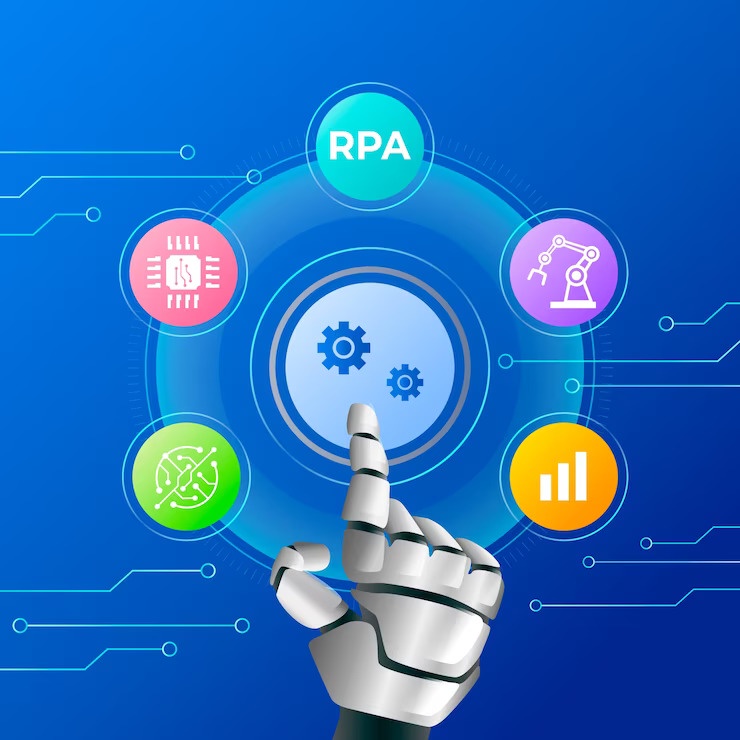At present, leveraging Business Process Management (BPM) is crucial for every enterprise. It enables organizations to accelerate task execution, lessen errors, and boost efficiency. Though, it can be a challenge to identify the time and resources to organize this. Several organizations are busy with systematic operations to take on new projects that will help their company in development. This leaves companies stuck in an incessant cycle of handling processes and workflows manually, which can be inefficient and demanding. Hence, implementing intelligent Robotic Process Automation software can help enterprises automate workflows without hiring dedicated developers or IT staff.
Introduction to RPA Software
In short, Robotic Process Automation software enables business users and developers to create, automate, deploy, and modify workflows, and processes with minimal coding requirements. The software helps in digitizing and refining business-critical workflows in a matter of minutes, enabling the teams to focus on other mission-critical tasks.
Unlike traditional tools, RPA platforms use a more visual approach by providing a user-friendly drag-and-drop interface and pre-built bots to streamline operations. As a result, RPA platforms ramp up development cycles and bring in flexibility for organizations. Experts from the recognized Robotic Process Automation development company can help enterprises implement the right RPA software within their infrastructure.
Why Enterprises Should Use RPA Platforms
For both IT and corporate departments, Robotic Process Automation platforms can pave an effective way to evolve while offering the workforce the ability to skip tedious and error-prone tasks. In addition, the RPA platforms allow business users across the organization to take complete control of their data in multiple applications, overcoming silos and deploying custom flows that retrieve their most crucial data whenever they require. When users can automate vital business processes at large, they can focus on other high-end projects and accelerate innovation.
Let’s look at some other reasons why enterprises should use modern RPA platforms:
- User-Friendliness – Robotic Process Automation tool’s drag-and-drop interface is easy to use and can be handled by users across an organization without relying on IT experts. It does not require extensive knowledge of programming languages and allows employees to build and deploy custom bots to assist them with their work.
- Better Agility - With an up-front way to build and customize bots, RPA tools platforms help enterprises make process modifications quickly without having to worry about intricate coding efforts. This allows organizations to stay on top of customer requirements, market developments, and regulatory variations.
- Process Standardization – RPA platforms also make it easier to standardize processes throughout the enterprise. This is specifically important for organizations in which the same process is executed by teams or workers across multiple locations. Regulated processes are easier to observe and track performance. Process standardization also delivers better user experiences for employees and end-users.
- Improved Productivity – RPA tools also help enterprises eliminate complexities related to Shadow-IT by providing a standardized approach for workflow modeling & automation. This allows business users and teams to build bots swiftly without relying on IT teams. Ultimately, this reduces reviews and briefings with the development team, which ensures a significant reduction in development costs, and time, and a fast return on investment.
3 Key Use Cases of RPA Platforms
1. Healthcare
RPA platforms allow modern healthcare institutions to overcome administrative complexities by providing tools that streamline hospital workflows and make processes function smoothly. RPA platforms provide simple drag-and-drop options to create healthcare workflow bots that make data more accessible for clinicians.
For example, healthcare organizations can use RPA platforms to build an automated approval bot. Clinicians can use this bot to swiftly provide approvals for any workflow, such as treatment, medical tests, patient discharge, invoicing, and insurance claims. As a result, Robotic Process Automation tools make healthcare workflows reliable, more efficient, and automated. Besides, automating these workflows through bots will ensure seamless coordination among departments, without anyone having to leave their desk.
2. Banking
Banking is one such industry that is actively adopting digital transformation. The need to improve user experience has stimulated banking firms to embrace automation.
With RPA implementation, banks can build digital solutions in hours, rather than investing several months or weeks in programming through the traditional approach. For banking firms that aspire to deliver digital solutions for customers and enhance their workflows, implementing an RPA platform is the right choice.
For example, banking firms can build a digital loan origination bot using RPA platforms. This way, banking firms can logically automate the whole lending process, from origination to disbursement. In addition, credit groups and banks can team up with the right RPA software development company to create intelligent workflow bots for other banking processes like credit card processing, user account onboarding, fraud detection, etc.
3. Retail
Robotic Process Automation platforms can help retail organizations develop & launch custom workflow bots 5 times quicker than traditional automation platforms. This is highly beneficial for organizations since it lessens the dependency on highly skilled developers and enables retail store owners to launch real-time bots for tracking-and-tracing vendor management, inventory management, and other customer-facing processes with quicker time to market.
By using an RPA platform, retail enterprises can easily integrate their new apps with active enterprise systems such as Customer Relationship Management (CRM), databases, Enterprise Resource Planning (ERP), and applications. Hence, the retail store owner can extract insights from data throughout their organization to execute valuable marketing analysis.
Summing Up
As mentioned before, Robotic Process Automation platforms are highly valuable for both software developers and line of business users. Through a visual interface, business users can build and deploy bots with a fast return on investment. RPA platforms help organizations become more responsive and fulfill corporate needs with better regulatory compliance.


No comments yet